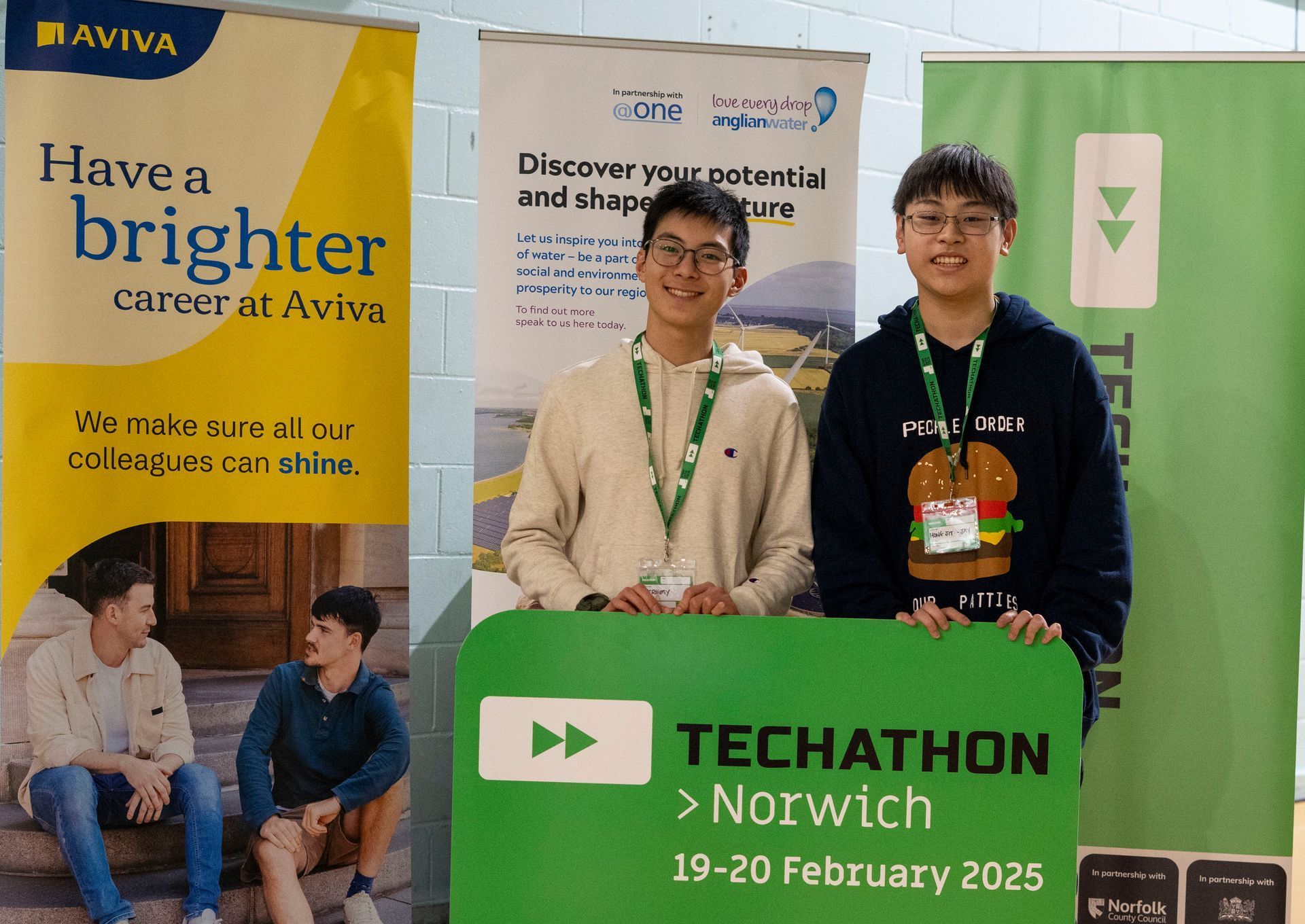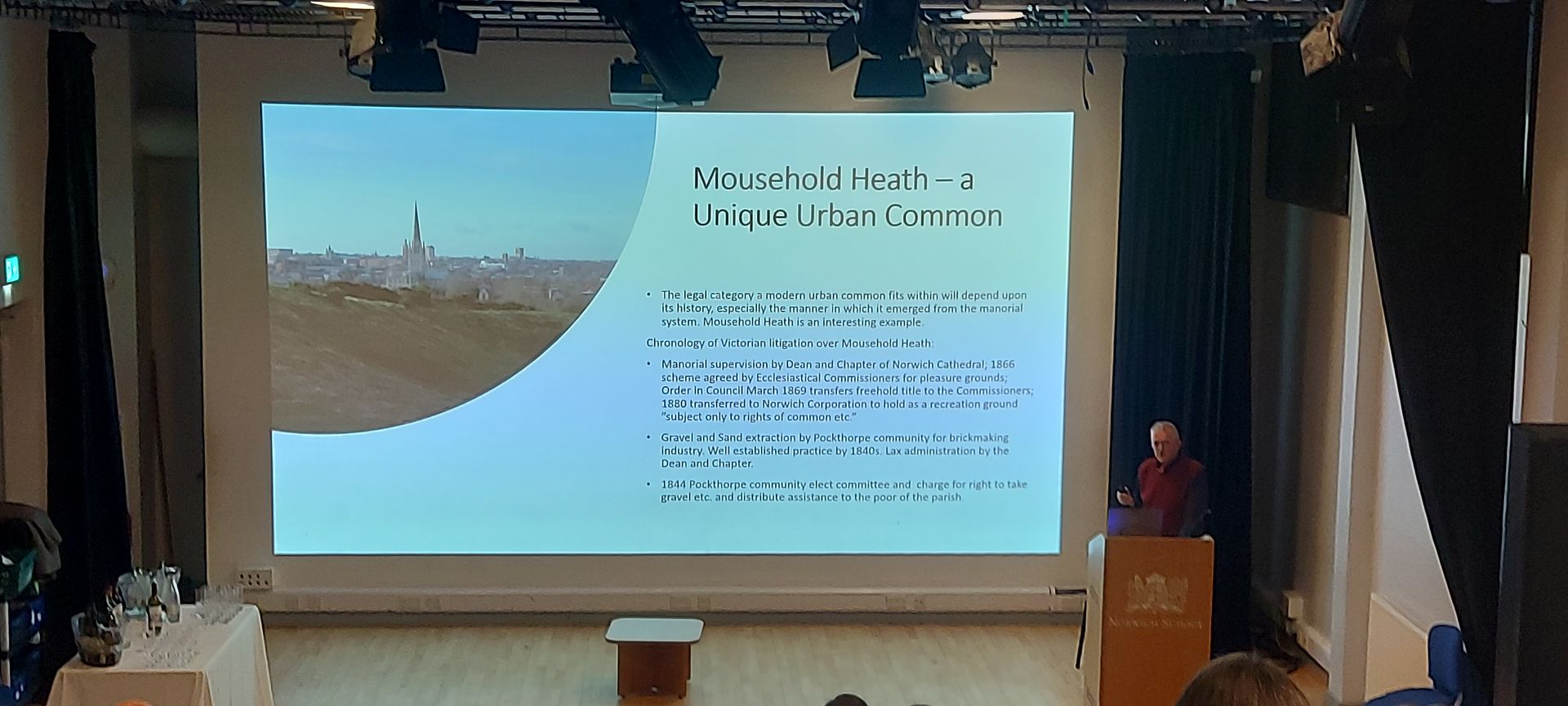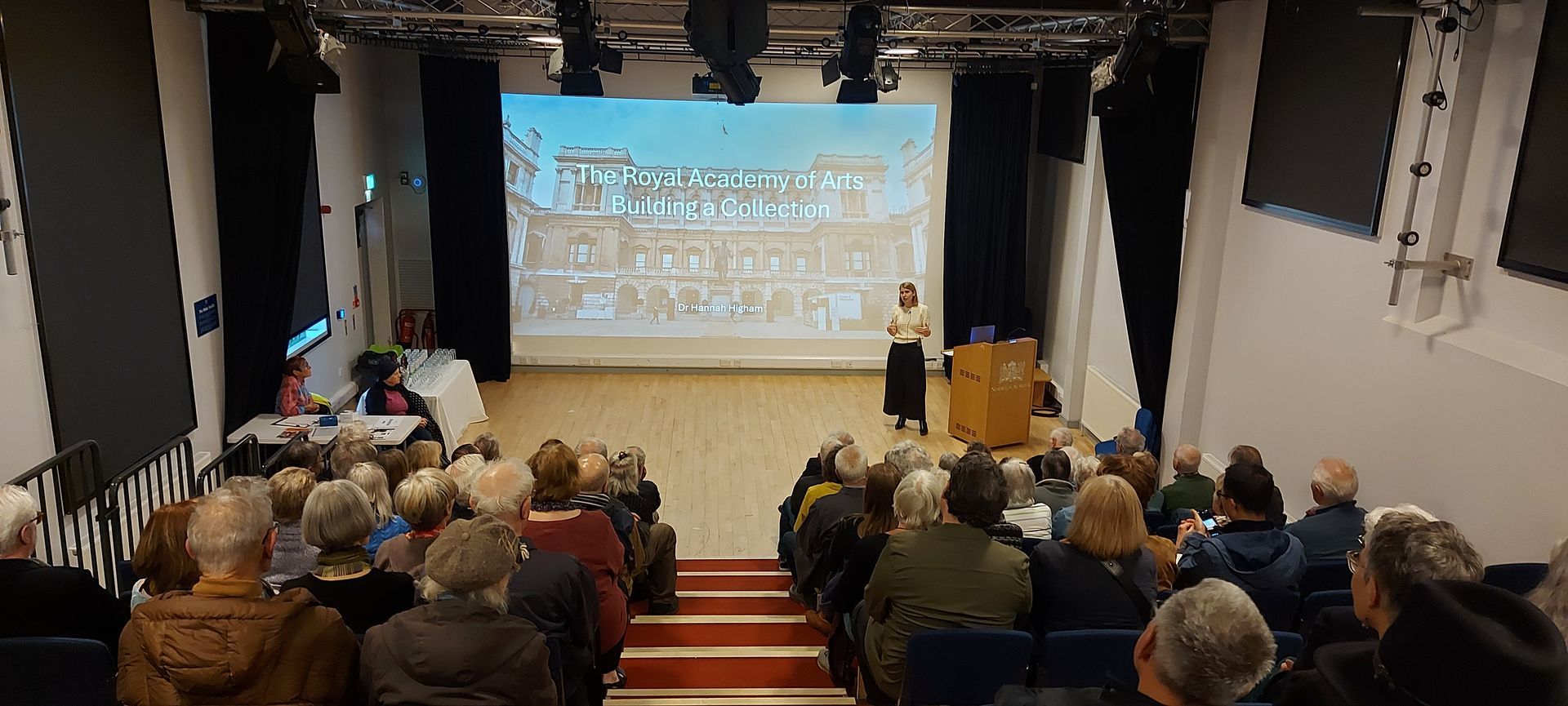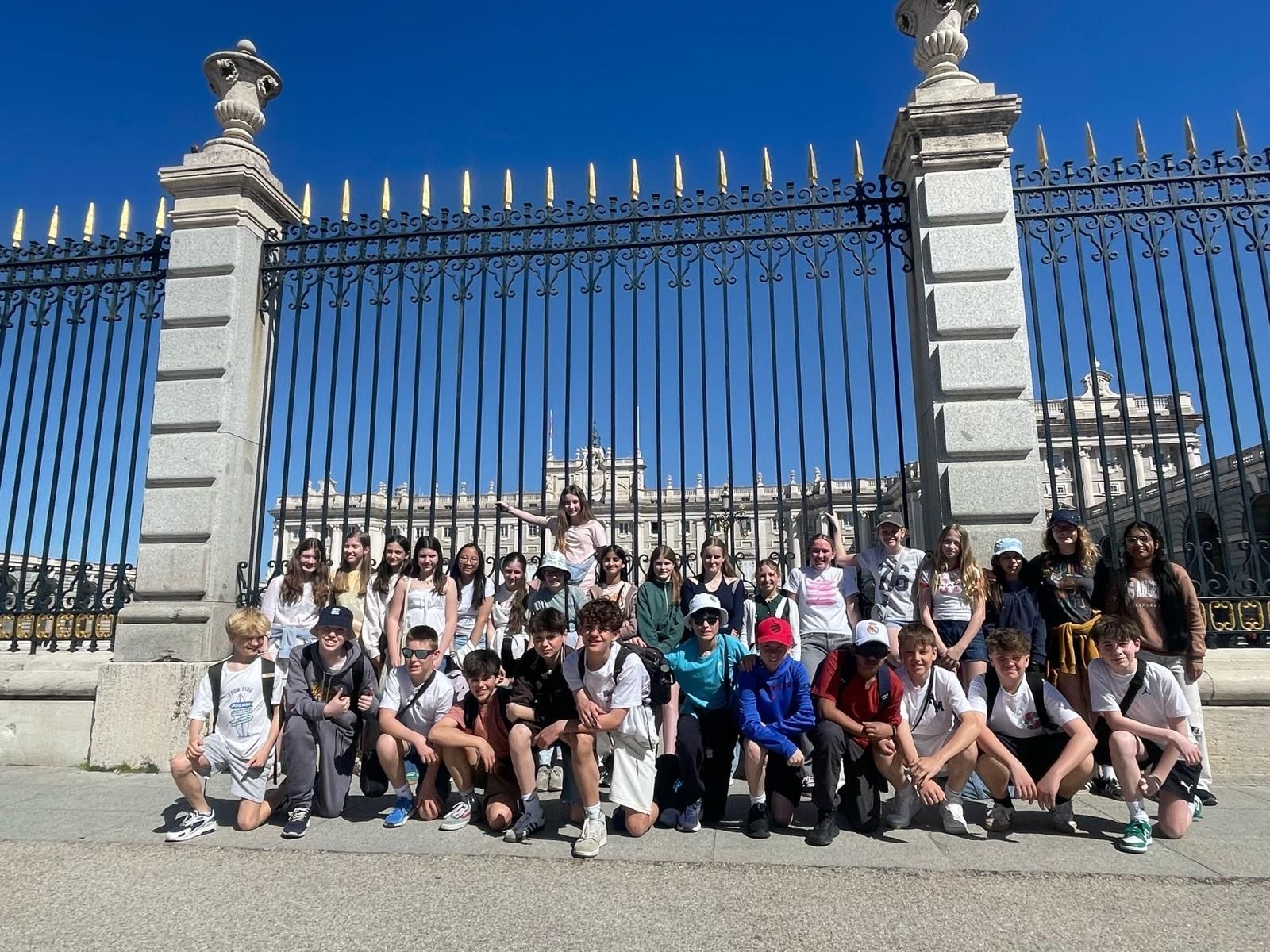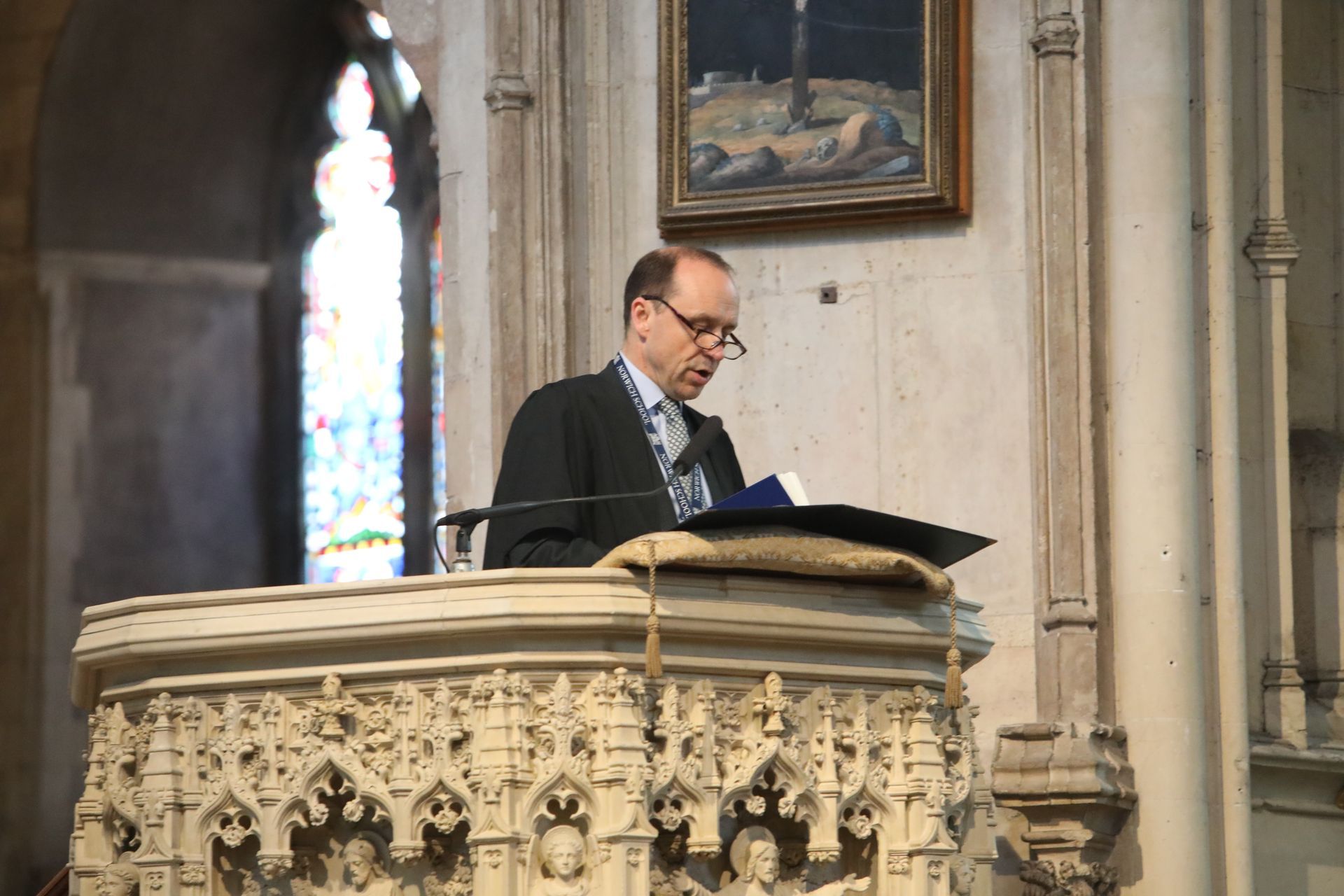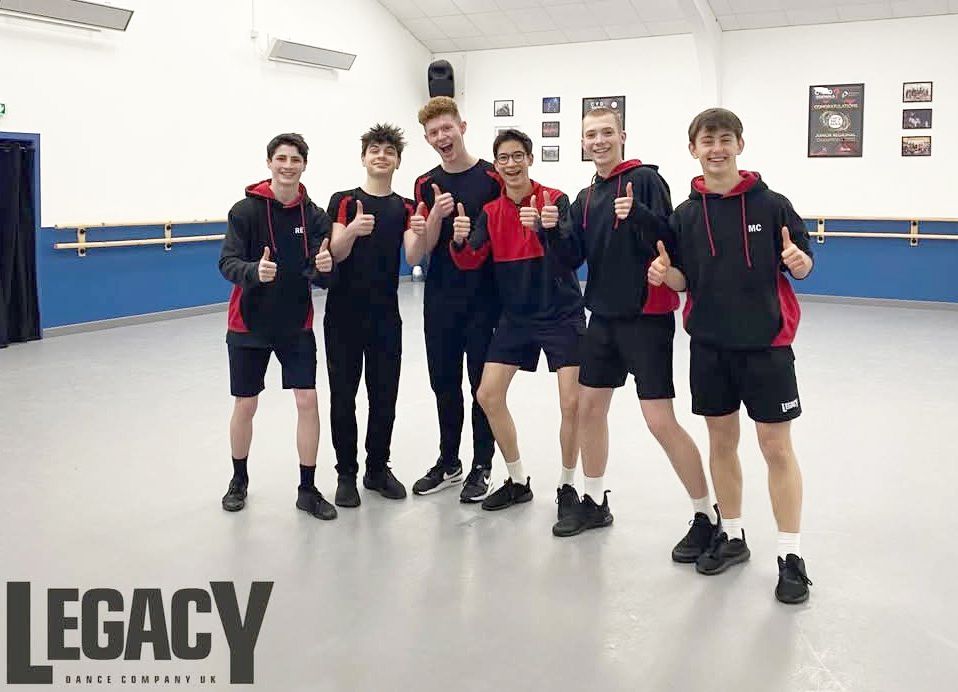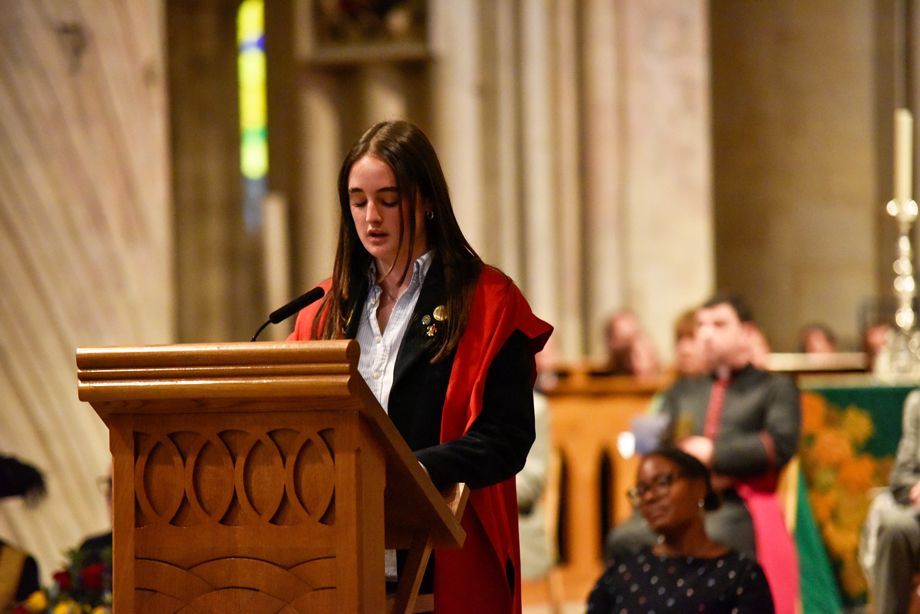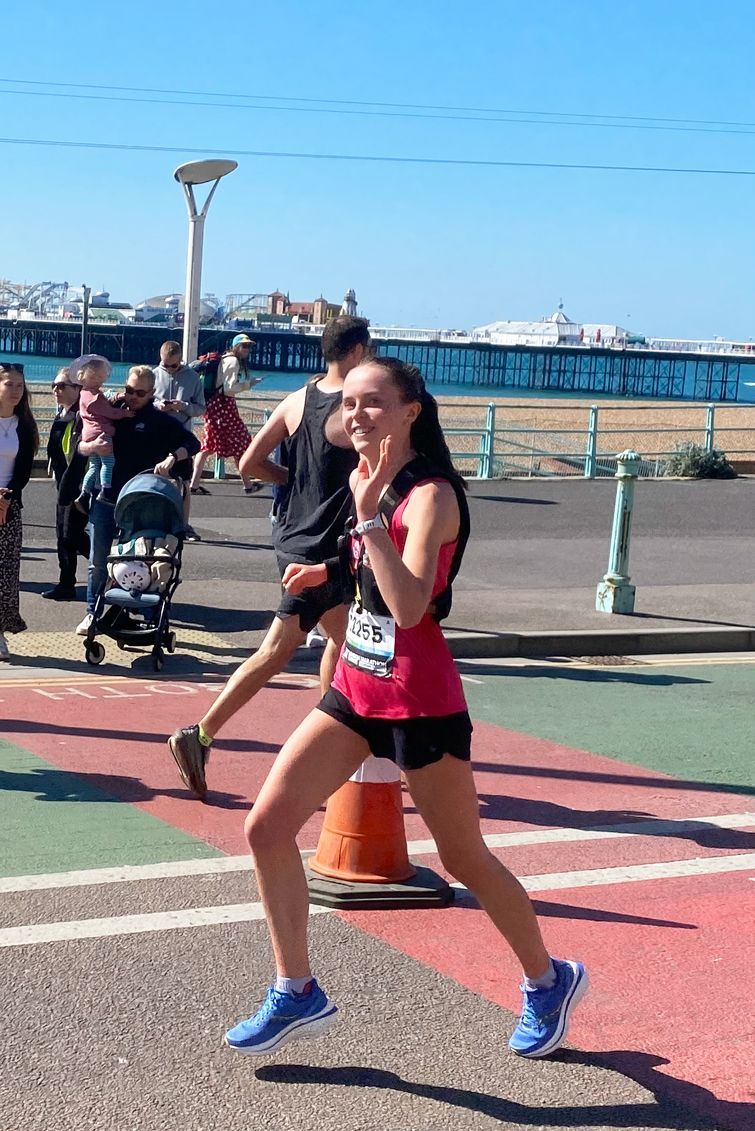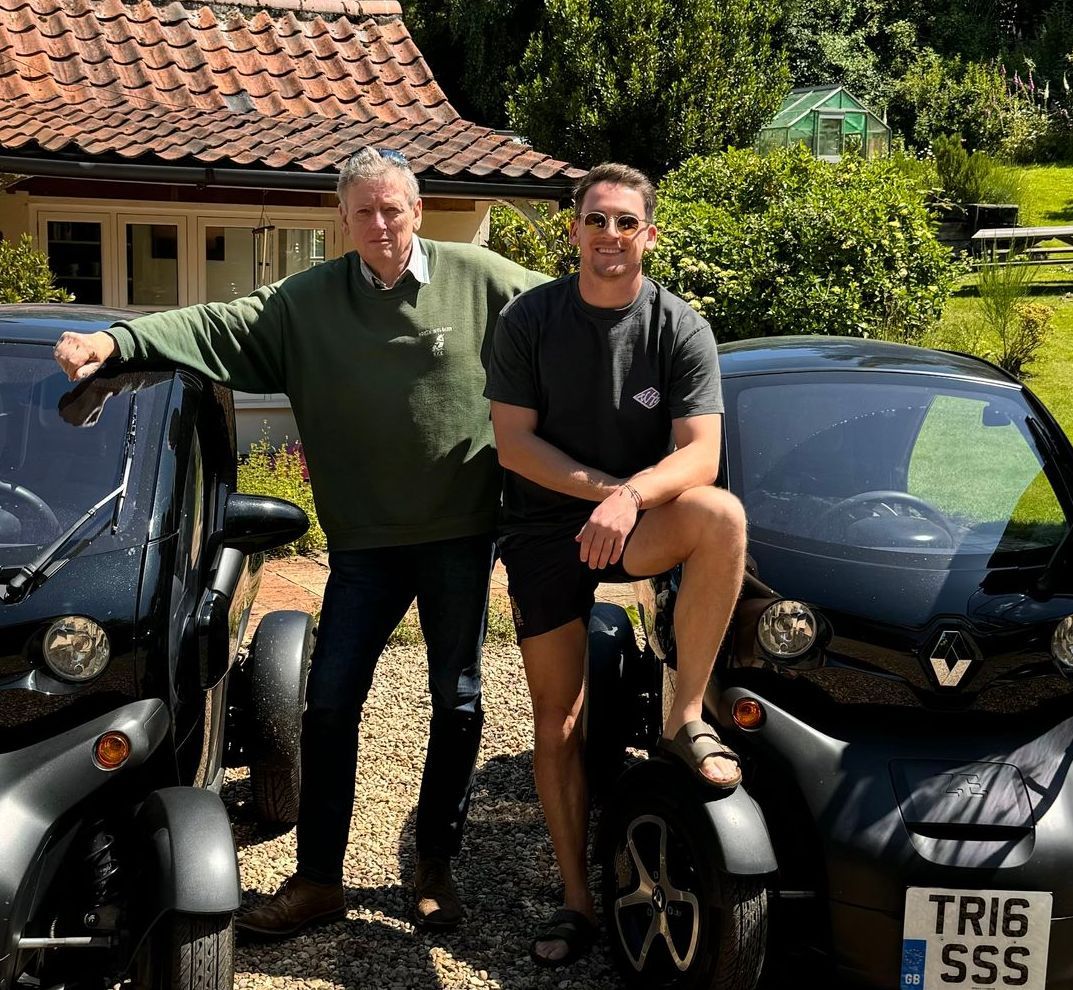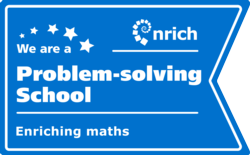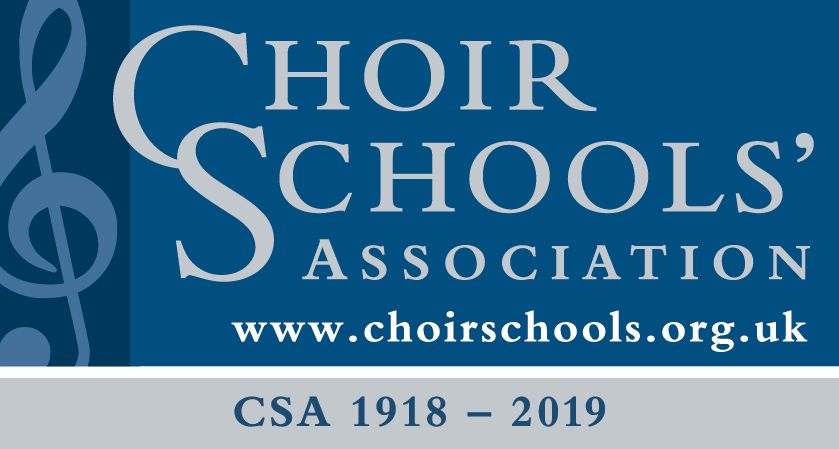Lower 4 Pupil, Ore Akere, Interviews The Right Honourable Stuart Lawrence
June 28, 2024
On Friday 28 June, The Right Honourable Stuart Lawrence visited Norwich School, in his visit he spoke to pupils in an assembly and was one of the authors for our Lower 4 Book Festival. Stuart's visit to Norwich School was incredibly inspiring for our pupils. In between his activities for the day, Stuart sat down with Lower 4 pupil, Ore Akere, to answer some questions.
You can read the interview below;
Ore: Hello! I’m Ore and I am interviewing Stuart Lawrence! My first question is – what quotes have inspired you in your life? This could be from a member of your family.
Stuart: There’s two really. One from my mum and one from my dad, my mum’s one would be “You have two ears and one mouth for a reason” which talks about how much I used to talk as a young person and maybe not listen as much as I really should have. I found out now that listening is actually a skill that you develop as you grow older, you have to listen to be able to hear what someone says and then reflect upon that; maybe as a child I wasn’t ready to really hear what they were saying to me. As for my dad it would have to be, “you can take a horse to water but you can’t make them drink.” So that concept is about listening to other people, learning from other people and not feeling like you know everything and that also reflects my day-to-day life now as an adult. I don’t know everything, I never am going to know everything but I have a thirst for knowledge, I have a thirst for acquiring knowledge which puts me in good stead. I feel that in that mindset every day is a learning experience, every day you develop, move forward and can get a bit better.
Ore: Ok that is great! Which book has inspired you the most? And is one that you think can inspire others?
Stuart: There’s probably two, one by Nova Reid called The Good Ally and that talks about how different people in different positions of their life have privilege and have access to things but in that privilege and access that you have, do you just close the door behind yourself? And say “oh that’s just for me!” or do you try and open it up to everyone and try and talk to everyone about how they can be better, having these bits of information and knowledge. I think that’s a really good book. In terms of children's books, I was a massive fan of Roald Dahl and the way that he was able to capture mood and feelings, I love the way he’s not afraid to make up words to best suit the scenario that he is talking about. We are very much prescribed to just use the words that we have or are told are ‘proper words’ or the ‘right words’ whereas he threw that whole thing out the window! This is true especially when you think of something like The BFG and the extravagance of the words that he then extended out and combined other words, I think its amazing to show everyone that you don’t always have to colour inside the lines. Sometimes stepping out of that and being a bit wild and whacky can produce brilliant pieces of art and that is what I love about art because art is one of those things that is in the eye of the beholder, what the same art what it means to me can be totally different to you, which I love as well.
Ore: Which book did you enjoy writing the most?
Stuart: I tell people that this is like asking who is your favourite child, if you have more than one. I’m lucky I only have one so I don’t have that questions asked to me very often but I would definitely say that Silence is Not an Option is the book that I am most proud of writing so far and I don’t think I’ll ever write anything as powerful as that. This is because, in essence what I was trying to do, is give my son the knowledge and information that was inside my head about what he was going to experience through secondary school. As much as people tell you about things and you read things I quickly realised that everyone’s personal experience of that journey is their own personal experience. You can give buffers of what it might be like but to say “it is going to be like this” - nobody knows. My childhood experienced of secondary school is not going to be exactly like my son’s childhood experience because I was 11 in the 1980s at the time the world looked like a different place, mobile phones weren’t a thing when I was at school. There were lots of problems and issues and even benefits I never had to think about. So now to think about him going through these things I had to factor all these different elements that is going to effect his mindset, his ability to do and to be the person I want him to be, so I keep that all in the back of my mind.
Ore: On that note, my last question is - are you a non-technology family? Or do you use technology quite a lot?
Stuart: I definitely would say that we are a non-technology family but I think that what happened with lockdown was that as much as we tried to push our son away from gaming and being online, when your encapsulating people to stay inside their own little bubbles with no other outside influence that is really hard. Especially as I only have one child he really wanted that interaction with other young people like himself as much as me and his mum are ‘cool’ to a certain extent, it’s not as cool as being with your mates. You play football together, you run around you act silly, all these other things we couldn’t bring so we caved a little towards the end of lockdown with technology. Once we gave him the technology eh could then access his other parts of his friendship group but now that we have given it to him we can’t take it away. We try to balance it out, he plays a lot of sport and does a lot of activities outside of school but at the end of the day if that’s his way to chill and relax we have to make room for that.
